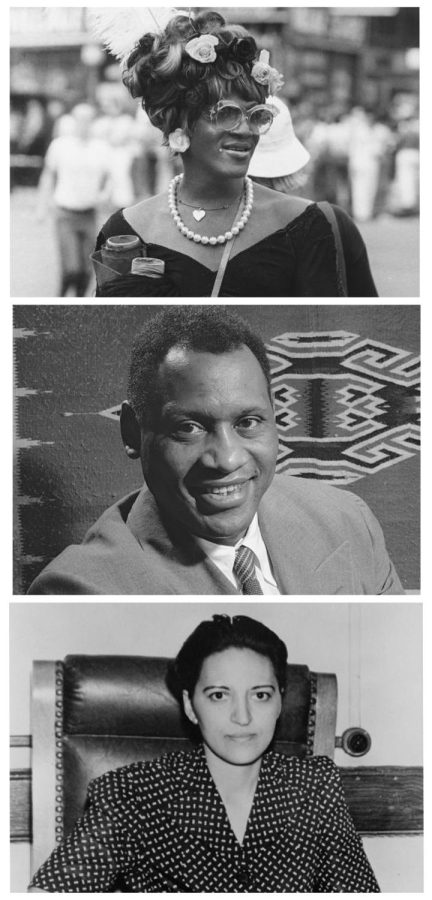History Makers
Hank O’Neil, Gordon Parks, Employee of the Office of War Information
Marsha P. Smith, Paul Robeson, Jane Bolin
February 27, 2023
When it comes to Black History Month we always hear about famous men and women who made a change. For example: Rosa Parks, Martin Luther King Jr. and Harriet Tubman. However, there were many others who made a difference that aren’t discussed as often like Jane Bolin, Marsha P. Johnson and Paul Robeson. Black History Month is the celebration of black history and culture. It is a celebration of what African-Americans have gone through and a reminder of what they have accomplished to make the future better.
One powerful black woman who has challenged the norms of society is Jane Bolin. She was America’s very first black woman to graduate from Yale Law School and to become a judge. Bolin was a judge for 20 years defending justice for women and children in New York City. During her 20 year appointment, it was difficult for her to stay working with the amount of racism and sexism targeted towards her. Not only that, she had personal problems to deal with like the death of her husband raising her kid on her own. Bolin was able to keep strong throughout her life and died at 98 in 2007.
One other black woman who changed history is Marsha P. Johnson. As a trans woman and drag performer, she was an activist for gay rights and a founder of the Street Transvestite Action Revolutionaries, an organization that housed homeless queer and trans youth in Southern New York City. Johnson was also an AIDS activist with Act Up for 5 years and brought awareness to the AIDS epidemic. Her body was found in the Hudson River and the police first named it as a suicide. People protested, saying that it wasn’t and, eventually, labeled it as a possible homicide, never going more into depth and leaving it unsolved.
A black man who made a difference is Paul Robeson. He was claimed to be a 20th-century Renaissance Man. Robeson was an actor, lawyer, author, singer, activist, he could play football, baseball, basketball and was in track. He was the first black man to play on the Rutgers college team and earned 15 letters in athletics. In his class he graduated as valedictorian and earned a law degree to work in a New York City law firm. Then, in 1927 he quit his job as an act of protest because of their racism. Soon after he turned to theater where he got to play big roles and got to play in Shakespeare’s “Othello” which is how he is best known today. He is also known for his song “Ol’ Man River” which is featured in “Show Boat.” Robeson was an activist for human rights, but was considered too controversial and was blacklisted. Because of this, he quit performing, his passport was revoked, and his songs were not longer played on the radio. He does not regret his decision, he said that “the artist must elect to fight for freedom or slavery. I have made my choice, I have no alternative.”



